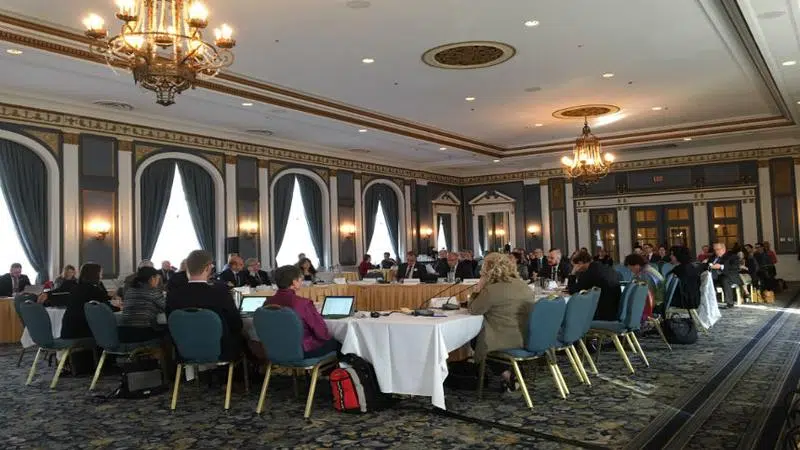
Bill C-69 gets chilly reception from Sask. mining industry
A proposed bill aimed to change the way major resource projects are assessed and approved in Canada received a cool response from industry officials in Saskatoon on Thursday.
Representatives from Cameco, Mosaic and Nutrien stated their opposition to Bill C-69 before the Senate energy committee studying the legislation and collecting feedback during a nine-day cross-Canada tour.
“The Impact Assessment Act will chill investment — a chill that can have a compounding effect through our economy,” said Michael Webb, Nutrien’s vice-president and chief administrative officer.


